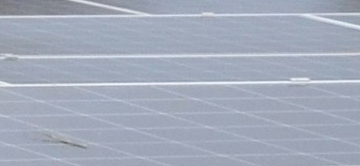During the closing session of the "Economics of Energy and Climate Change" conference[1] held in Toulouse on 8 and 9 September 2015, Serge Planton, head of the climate research group at the French national centre for meteorological research, presented the final conclusions of the 5th IPCC report, which he co-authored, demonstrating the reality of climate change and describing several possible future scenarios. Paul Joskow, Professor of Economics Emeritus at MIT and now President of the Sloan Foundation, explained that all the measures adopted to date will not be enough to keep mankind on a 2°C warming trajectory. Lastly, Jean Tirole told delegates that setting a single price was the simplest and most effective way of reducing CO2 emissions, but that this option was not on the agenda for COP 21. One participant concluded the conference by raising the inevitable question: what will a 5°C warmer planet be like?
Economists recommend putting a price on pollutant emissions to coordinate human activities, but this solution has been met with widespread opposition. This post explores why.[2]
1. How can human activities be coordinated?
In all human societies (probably in the whole ecosystem, come to that), each member's well-being depends on the actions of others. Thus our atmospheric CO2 emissions alter living conditions for our contemporaries, but also for our descendants. To ensure that individual actions serve the collective good, a coordination mechanism needs to be found.
One solution is to set a standard, and directly monitor quantities. This might mean setting an upper limit on greenhouse gas (GHG) emissions from our factories and equipment, in particular our cars, busses, and trucks. But standards are very expensive to enforce, especially when the sources of pollution are small and numerous. Huge amounts of information need to be processed, and a very intrusive monitoring and punishment system is required. The limitations of coordination by quantities have been demonstrated by their failure in centrally planned economies.
Another coordination method is price. It would allow us all to produce as much GHG as we like provided we pay a price for the environmental damage caused, perhaps €30 per tonne of CO2 emitted. Here again, emissions need to be monitored, but it is easier to do because measurements can be taken at production points. GHG emissions by motor vehicles are a case in point. Currently, states set emissions standards. These standards are negotiated between states in Europe, but also between states and national car manufacturers, with lobbying firms profiting massively from the negociations. Setting a CO2 emissions price does away with the standards problem: to pay less for fuel, motorists will demand that manufacturers produce vehicles that consume, and emit, less. The price therefore also encourages economic agents to innovate. Anybody who thinks €30/tonne is too high can develop equipment or modify their uses in order to reduce their CO2 emissions. While standards fix and limit, a price opens up numerous possibilities.
2. How to determine the price of a tonne of GHG?
One method, often used by pro-welfare-state governments, is top-down price setting: prices are determined by a panel of "enlightened" individuals, experts and/or top civil servants. This is the case of the carbon tax we pay on fuels. The government determines the "right price" for carbon in the economy, and adds a tax to the retail price paid by consumers. It is also the case of the price controls in place in France until 1986 or the French government's recent rent control measures for housing in selected cities. The problem, of course, is that the individuals tasked with setting the price, as enlightened and benevolent as they may be, can make mistakes. And mistakes are all the more likely when the product to be assessed affects a large number of agents, and therefore involves the collection and processing of lots of information.
The other option is a market-driven price, determined by interactions between producers/sellers (supply) and consumers/buyers (demand). The driver for this method is the gain for each agent, who compares his or her private information (readiness to pay for buyers, sale price for sellers) with the public information represented by the price. The system of GHG emissions quotas currently imposed on some 12,000 EU-based industrial firms belongs to this family.
The superiority of the market as a mechanism of price determination, and therefore of large-scale coordination, has become clear in contrast to the failure of central planning experiments. But then, if the market is so efficient, why does its use provoke so many negative reactions? Why do the majority of governments refuse to use it to tackle the challenge of climate change?
We will now examine three possible explanations: (i) there is confusion between the market as a mechanism of information disclosure and the market as an organising principle in our societies, (ii) markets are imperfect, which causes suspicion, and (iii) markets are accused of human failings.
3. The social value of the market
The previous discussion suggests that the market is an efficient price-setting mechanism which can help coordinate citizens' economic decisions and actions. That's all. The market is not an organising method for society, nor a philosophical principle. It is merely a tool we can use, enabling us to overcome the obstacle of processing vast quantities of data by decentralising decisions.[3]
The market does not identify the problems our societies face. However it can help solve them. For example, the market does not decide that the environment needs protecting. In the "Laudato Si'" encyclical, paragraph 190, Pope Francis reminds us that "environmental protection cannot be assured solely on the basis of financial calculations of costs and benefits. The environment is one of those goods that cannot be adequately safeguarded or promoted by market forces."
Yet the creation of a CO2 market would generate a CO2 price which encourages agents to reallocate their resources in a greener way. The market plays the same role as a washing machine. It would be unreasonable to expect the machine to tell us how to dress. However, we can count on it to wash our clothes.[4]
The exaggerated role sometimes given to markets may be related to the fact that markets and democracy often go hand in hand: democratic institutions are needed to create markets, as demonstrated by Daron Acemoglu and James Robinson's excellent book[5], which we have previously recommended to readers of this blog. In addition, the market uses collective intelligence to determine prices, just as democracy relies on this same collective intelligence to govern the polity. Despite these shared features, markets and democracies are distinct, and it is unrealistic to expect a market to organise our lives.
4. Market failures
For informational, technical and behavioural reasons, markets are imperfect. For example, the price signals from the interaction between supply and demand can be manipulated when an actor or group of actors exercises market power.[6] This power can derive from the size of some agents, from control of essential utilities, or an information edge.
This is not a recent discovery. Feudal lords were keenly aware of it and jealously controlled bridges and other strategic crossing points. More recently, the 19th century American robber barons capitalised fully on their massive scale. John Rockefeller systematically eliminated his rivals to give Standard Oil a monopoly over oil distribution in the United States[7].
The citizens’ response to the market's imperfections must be identical to their response to all of society's imperfections: get laws passed, and demand that the authorities enforce them. Faced with the abuses of the robber barons, the US Congress passed in 1890 the Sherman Act, which sets a framework for analysing and prosecuting market manipulation. In the 20th century, government agencies were set up to ensure that manipulation was detected, and prosecuted.
Europe, and France in particular, still lags behind in this area. Our governments – and our fellow citizens – respond to the imperfections of the market with empty insults. Rather than denouncing the markets, it would be far more effective to legislate to make them perform better. By enforcing competition law uniformly across its member states, the EU has reduced price manipulation by big companies and groups of companies: metaphorically, it has made the laundry coming out of the machine much cleaner.
5. The market as a mirror of human failings
As demonstrated by the phenomenal success of Thomas Piketty's book[8], Europeans and North Americans are deeply troubled by growing inequality. How can we understand let alone accept a world in which the 80 richest people have more wealth than the poorest half of humanity?[9]
It is tempting to put this massive and intolerable disparity down to the cruel, destructive logic of the market. Tempting, but mistaken. For better and for worse, human beings are imperfect. Our visceral egotism enabled us to survive in an initially hostile environment, in competition with other seemingly far fitter animals. While this selfishness ensured the survival of the species, it, not markets, is the main cause of the inequalities that have been around since the dawn of time. There is certainly a staggering wealth divide between the internet giants and their employees, but it is no larger than the gap that existed between the Pharaohs and their subjects, or the Sun King and his peasants. The root of these inequalities lies in the selfishness and vanity of men, not coordination by prices.
* * *
Climate change is the major challenge facing our generation and those that will come after us. Economics, and common sense, suggest that the most effective way of curbing GHG emissions is to make them more expensive. The chinese communist party, for once, agrees with our view and recently proposed to set up a carbon market in China[10]. Let us hope that world leaders gathering in Paris at the end of the year will have the wisdom to harness this formidable tool to serve the climate cause.
Title: A reference to John Steinbeck excellent novel: "Of Mice and Men", published in 1937 en.wikipedia.org/wiki/Of_Mice_and_Men. In this novel, the main protagonists face significant obstacles, the most daunting of which are caused by other men’s actions, not by market forces.
[1] The presentations are available here idei.fr/fr/conferences/2015-tenth-conference-economics-energy-and-climate-change.
[2] This post was inspired by reading a post by Maximilian Auffhamer, Professor at the University of California, Berkeley energyathaas.wordpress.com/2015/08/17/why-the-pope-is-wrong-on-markets/?utm_source=Blog+for+Aug+17,+2015&utm_campaign=blog+re+60&utm_medium=email, itself inspired by the "Laudato Si’" encyclical http://w2.vatican.va/content/francesco/en/encyclicals/documents/papa-francesco_20150524_enciclica-laudato-si.html
[3] Readers interested in this point may enjoy "La vraie nature du marché" [The True Nature of the Market], a very concise and informative book by Jean-Pierre Hansen www.amazon.fr/La-vraie-nature-marché-gouvernent/dp/2804171426.
[4] We'd like to thank General Jean-Patrick Ridao for this analogy, which he shared with one of the authors of this blog nearly thirty years ago.
[6] In French, "market power" ("pouvoir de marché") is often confused with the "power of the market" ("pouvoir du marché"). This confusion was obvious in the press' reaction to the award of the Nobel prize for economics to Jean Tirole in 2014: his scientific work on the dangers of price manipulation by certain agents were misinterpreted as a defence of markets as a mode of social organisation. The champion of public intervention as a way of correcting market errors found himself cast as a proponent of unfettered liberalism!
[7] Daniel Yergin offers a very accessible take on the Standard Oil saga in his book, "The Prize" en.wikipedia.org/wiki/The_Prize:_The_Epic_Quest_for_Oil,_Money,_and_Power.





